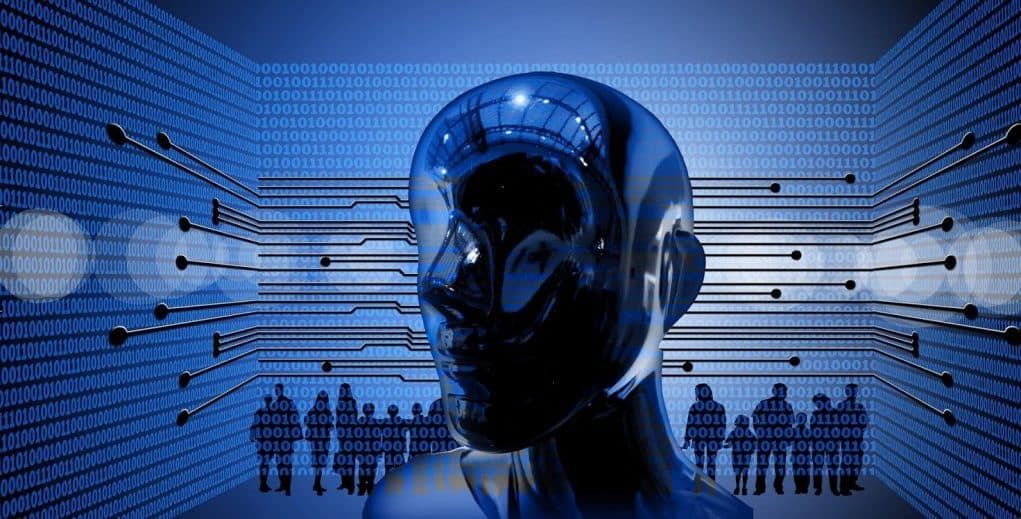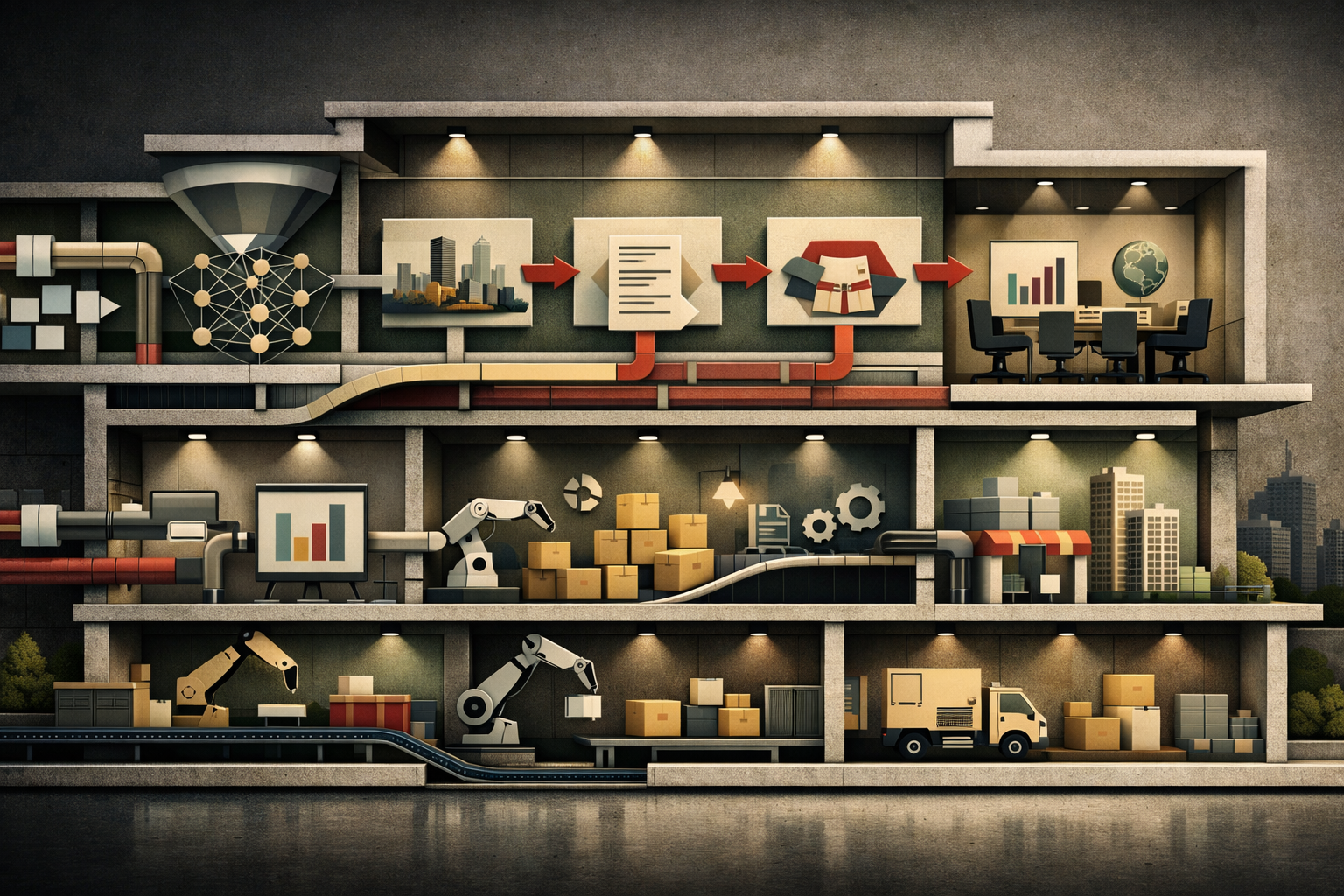How Artificial Intelligence Will Affect the Jobs of the Future
Artificial Intelligence is rapidly transforming the workforce, reshaping job roles, creating new opportunities,
Jane Morris
October 08, 2025 • 4 min read

Overview
In recent years, artificial intelligence (AI) has transitioned from a futuristic concept to an integral part of our daily lives. From automating mundane tasks to making complex decisions, AI is reshaping industries, creating new opportunities, and rendering some jobs obsolete. As we move toward a more AI-driven future, it's essential to understand how this technology will affect the job market and what skills will be in demand.
The integration of AI into various sectors is significantly altering traditional job roles. For example, in industries like manufacturing and logistics, AI-powered robots are now capable of performing tasks that once required human labor. This transformation raises concerns about job displacement. However, historical trends suggest that while some positions may vanish, new opportunities will emerge.
How Artificial Intelligence Will Affect the Jobs of the Future
In recent years, artificial intelligence (AI) has transitioned from a futuristic concept to an integral part of our daily lives. From automating mundane tasks to making complex decisions, AI is reshaping industries, creating new opportunities, and rendering some jobs obsolete. As we move toward a more AI-driven future, it's essential to understand how this technology will affect the job market and what skills will be in demand.
The Transformation of Traditional Roles
The integration of AI into various sectors is significantly altering traditional job roles. For example, in industries like manufacturing and logistics, AI-powered robots are now capable of performing tasks that once required human labor. This transformation raises concerns about job displacement. However, historical trends suggest that while some positions may vanish, new opportunities will emerge.
Automation and Efficiency
In fields such as customer service, AI chatbots are becoming increasingly sophisticated, capable of handling queries that once required human intervention. This efficiency can result in cost savings for companies but may also lead to a reduced demand for entry-level customer service roles. However, the rise of AI also creates job opportunities in areas like AI system management, programming, and maintenance. Workers previously engaged in routine tasks may need to transition to focus on tasks that require critical thinking and emotional intelligence—skills that cannot easily be replicated by machines.
Upskilling and Reskilling
As the nature of work evolves, upskilling and reskilling will become essential. Organizations will benefit from investing in their employees by providing continuous training on AI systems and technologies. Workers can enhance their employability by gaining skills in data analysis, machine learning, and programming languages, positioning themselves for future roles that leverage AI rather than compete against it. Educational institutions are beginning to recognize this shift and are updating curricula to include more STEM (Science, Technology, Engineering, and Mathematics) programs, ensuring that graduates are equipped to thrive in an AI-enhanced job market.
New Job Categories and Opportunities
As AI continues its rapid development, it will create entirely new job categories that didn't exist a decade ago. Roles focusing on AI ethics, data privacy, and AI auditing are gaining prominence as organizations grapple with the ethical implications of AI deployment. In addition, positions related to AI training, such as AI trainers and curators, are emerging where experts will be required to monitor and fine-tune AI models to ensure accuracy and fairness.
The Rise of Creative and Strategic Roles
Interestingly, as AI takes over more technical and operational tasks, there may be an increasing demand for jobs centered around creativity and strategic thinking. Marketing, design, and innovation roles will likely flourish as companies seek to differentiate themselves in an increasingly automated landscape. These positions will require humans to tap into emotional intelligence, complex problem-solving, and innovative thinking—traits that AI currently struggles to replicate.
Entrepreneurial Opportunities
The growing adoption of AI also opens the door for entrepreneurship. Startups focusing on AI-driven solutions are emerging in diverse fields such as healthcare, finance, and transportation. Entrepreneurs who can harness AI technology to solve real-world problems will find fertile ground for growth. The democratization of AI tools is enabling individuals and small teams to create solutions that previously required vast resources, further expanding the job market.
Conclusion: Embracing the Change
The influence of artificial intelligence on the jobs of the future is undeniable. While concerns about job displacement are legitimate, it’s crucial to recognize that AI will also forge new opportunities and career paths. By embracing the change and focusing on upskilling, reskilling, and fostering creativity, workers can thrive alongside AI rather than be threatened by it.
Preparation and adaptability will be paramount in navigating this shifting landscape. As organizations and individuals work together to harness the power of AI responsibly, the future job market may not only reflect a balance between humans and machines but could also be enriched by innovative thinking and unparalleled creativity. Embrace the journey ahead; the future is bright for those ready to evolve with it.
Comments
0 TotalNo comments yet. Start the conversation.
Explore More Deep Dives

Deep Dives
Exploring the Impact of Generative AI on Business
DEEP DIVE Exploring the Impact of Generative AI on Business As generative AI technologies evolve, their transformative potential f...
Read deep dive
Deep Dives
Street Art and Muralism as Tools for Social Transformation
Discover how street art and muralism serve as powerful tools for social transformation by fostering community engagement, challeng...
Read deep dive
Deep Dives
Train vs Plane Travel: Environmental Impact and Real Costs
Explore the environmental impact and true costs of train versus plane travel. Understand how each mode affects carbon emissions, o...
Read deep dive